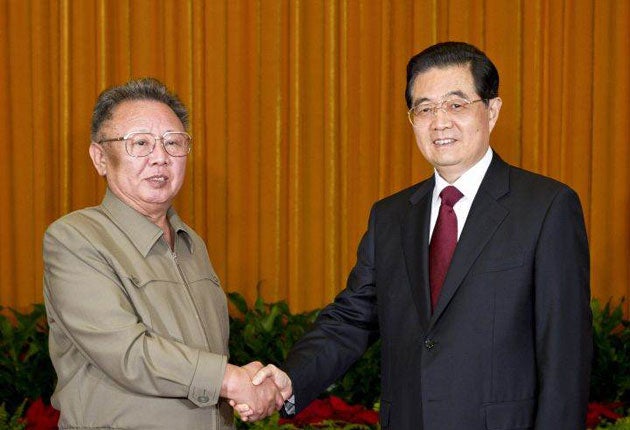China opens doors to despots with series of pariah state visits

Your support helps us to tell the story
From reproductive rights to climate change to Big Tech, The Independent is on the ground when the story is developing. Whether it's investigating the financials of Elon Musk's pro-Trump PAC or producing our latest documentary, 'The A Word', which shines a light on the American women fighting for reproductive rights, we know how important it is to parse out the facts from the messaging.
At such a critical moment in US history, we need reporters on the ground. Your donation allows us to keep sending journalists to speak to both sides of the story.
The Independent is trusted by Americans across the entire political spectrum. And unlike many other quality news outlets, we choose not to lock Americans out of our reporting and analysis with paywalls. We believe quality journalism should be available to everyone, paid for by those who can afford it.
Your support makes all the difference.As the G8 conference starts in France, the Chinese government has itself been busy entertaining ministers from some of the world's pariah states, at a series of meetings where human rights, or the opinion of the Western democracies, were not high on the agenda. For China, a current round of visitors sits well with the country's fiercely held foreign policy of non-intervention.
North Korea's secretive leader Kim Jong-il took to his customised armoured train for a whistle-stop tour of China on a look-and-learn visit, examining China's economic miracle and its efforts to introduce renewable energy at close quarters. As China's communist leadership is fond of saying, the two Cold War allies are "as close as lips and teeth".
It has emerged that Mr Kim met the Chinese President Hu Jintao in a meeting that emphasised the influence that China has with the impoverished North Koreans. Mr Kim and China's leaders vowed that their alliance "sealed in blood" will pass on to their successors, state media said
Mr Kim's summits with Mr Hu and Premier Wen Jiabao apparently brought no open discussion of who would succeed the ageing North Korean leader, who has singled out his youngest son Kim Jong-un to take over one day. It is considered that China, North Korea's biggest economic backer, could have an important say over the succession.
But both Pyongyang and Beijing hinted that the issue was on their minds and stressed generational changes would not shake their bond, in official reports about Mr Kim's latest visit, released after he left the Chinese capital. "You, General Secretary Kim Jong-il, attach great importance to developing Sino-North Korean relations, and since last year have visited China three times, stressing many times that the young generation must properly inherit the friendship between China and North Korea," Mr Hu told Mr Kim, China's Xinhua news agency said.
Another country causing widespread jitters about its nuclear ambitions is Iran, and that country's foreign minister, Ali Akbar Salehi, visited Beijing to commemorate four decades of diplomatic ties. Thein Sein, Burma's President, a former general and prime minister in the military junta that handed power to a nominally civilian government at the end of March, has also been in China this week.
"China views a number of countries in the world as in alliance in not having democracy or sharing Western human rights concepts," Michael Davis, a law professor and Chinese politics expert at Chinese University of Hong Kong, told the Associated Press. "It helps mobilise their legitimacy argument that the Western approach is not the only one."
Join our commenting forum
Join thought-provoking conversations, follow other Independent readers and see their replies
Comments